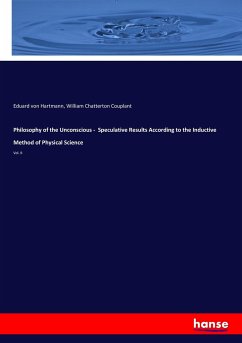Discourse on the Method of Rightly Conducting One's Reason and of Seeking Truth in the Sciences (French: Discours de la Méthode Pour bien conduire sa raison, et chercher la vérité dans les sciences) is a philosophical and autobiographical treatise published by René Descartes in 1637. It is best known as the source of the famous quotation 'Je pense, donc je suis' (English: 'I think, therefore I am', or 'I am thinking, therefore I exist'), which occurs in Part IV of the work. The similar Latin statement, Cogito, ergo sum, is found in Meditations on First Philosophy (1641) and Principles of Philosophy (1644). Discourse on the Method is one of the most influential works in the history of modern philosophy, and important to the development of natural sciences. In this work, Descartes tackles the problem of skepticism, which had previously been studied by Sextus Empiricus, Al-Ghazali and Michel de Montaigne. Descartes modified it to account for a truth he found to be incontrovertible. Descartes started his line of reasoning by doubting everything, so as to assess the world from a fresh perspective, clear of any preconceived notions.The book was originally published in Leiden, in the Netherlands. Later, it was translated into Latin and published in 1656 in Amsterdam. The book was intended as an introduction to three works: Dioptrique, Météores and Géométrie. La Géométrie contains Descartes's initial concepts that later developed into the Cartesian coordinate system. The text was written and published in French rather than the language in which philosophical and scientific texts were most frequently written and published in at the time, namely, Latin. Most of Descartes' other works were written in Latin.Together with Meditations on First Philosophy, Principles of Philosophy and Rules for the Direction of the Mind, it forms the base of the epistemology known as Cartesianism. The long chains of simple and easy reasonings by means of which geometers are accustomed to reach the conclusions of their most difficult demonstrations, had led me to imagine that all things, the knowledge of which is competent to man, are mutually connected in the same way, and that there is nothing so far removed from us as to be beyond our reach, or so hidden that we cannot discover it, provided only we abstain from accepting the false for the true, and always preserve in our thoughts the order necessary for the deduction of one truth from another. This treatise on the value of doubt and skepticism when studying the natural world laid the foundation for the modern scientific method as we still employ it today, as well as the basis for modern philosophy. Written in French and first published in 1637 under the full title Discourse on the Method of Rightly Conducting the Reason, and Seeking Truth in the Sciences, it is here presented in the 1901 edition of the 1850 English translation by Scottish poet, philosopher, and historian JOHN VEITCH (1829-1894).
Hinweis: Dieser Artikel kann nur an eine deutsche Lieferadresse ausgeliefert werden.
Hinweis: Dieser Artikel kann nur an eine deutsche Lieferadresse ausgeliefert werden.








